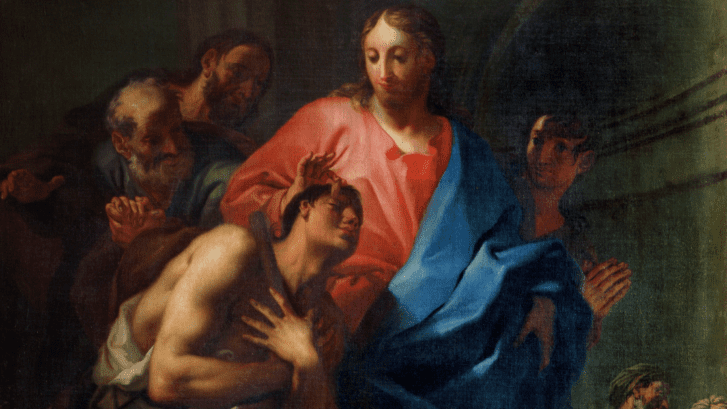Today, we hear the story of Bartimaeus, a blind beggar who, upon learning that Jesus is passing by, seizes what might be his only chance to reach out to the Miracle Worker. He cries out, “Jesus, Son of David, have mercy on me.” But instead of helping him get closer to Jesus, the crowd tells him to be quiet and tries to push him away. Only one person steps forward to help Bartimaeus—Jesus Himself.
When Jesus hears the crowd trying to silence the beggar, He stops. But instead of going directly to Bartimaeus, Jesus instructs those who were keeping him away to call the man over. It’s only then that the crowd changes its attitude and assists the blind man.
So, who was truly blind in this situation? Was it Bartimaeus, who could not see physically? Or the followers of Jesus, who failed to see the man’s need? Physical blindness is difficult to cure, but spiritual blindness is even harder to recognize.
My friends, consider this: One father brushes his daughter aside when she wants to share her schoolwork with him, saying, “Can’t you see I’m watching the game? Go bother your mother.” Another father, overwhelmed with love for his daughter, pens a song for her, writing, “Isn’t she lovely? She is truly the angel’s best. We have been Heaven-blessed. I can’t believe what God has done. Isn’t she lovely?” The second father is Stevie Wonder, the blind singer. So, who truly sees his daughter? Who is blind?
Now think about this: A man dismisses his wife when she looks for affirmation about her attractiveness, and longs for a heartfelt conversation. Rather than engaging with her, he merely asks, “Did you wash my golf shirt yet?”
Meanwhile, another husband, deeply moved by his love for his wife, writes her a love song: “You are so beautiful to me. You are everything I hoped for, you are everything I need. You are so beautiful to me.” That song was written by Ray Charles, another blind artist. Which man truly sees his wife? Which one is blind?
Finally, imagine two women sitting in church. One is distracted, thinking about lunch plans and judging others’ appearances. The other is Fanny Crosby, a woman blind from birth, who later wrote about her worship experience: “Perfect submission; perfect delight. Visions of rapture now burst on my sight.” Which woman truly experiences worship? Which one is blind?
In each of these examples, who are the truly blind? And which type of blindness is the most difficult to heal? Some people choose to remain blind, perhaps because they’ve grown accustomed to the darkness, just as others grow used to the light. It has been said that death is not about extinguishing the light, but about putting out the lamp because the dawn has come.
In today’s Gospel, dawn arrives for Bartimaeus, ending his long night of blindness. But he didn’t sit passively, waiting for something to happen. He boldly called out to Jesus. In our own lives, as we seek the light, let Bartimaeus inspire us. Let us persistently call out to Jesus as He passes by.
Many of us have our own blind spots—blindness to prejudice, to injustices at work, to the needs of those closest to us. Remember Bartimaeus’s simple but powerful request: “Lord, let me see.”
This is a prayer we should all whisper from time to time. “Let me see the things I need to see: the people I’ve hurt, the wrongs I’ve done. Let me see those who feel rejected by society and the Church. Let me see Your goodness and experience Your love for me. In all times, in all places, in all situations, Lord, let me see.”


